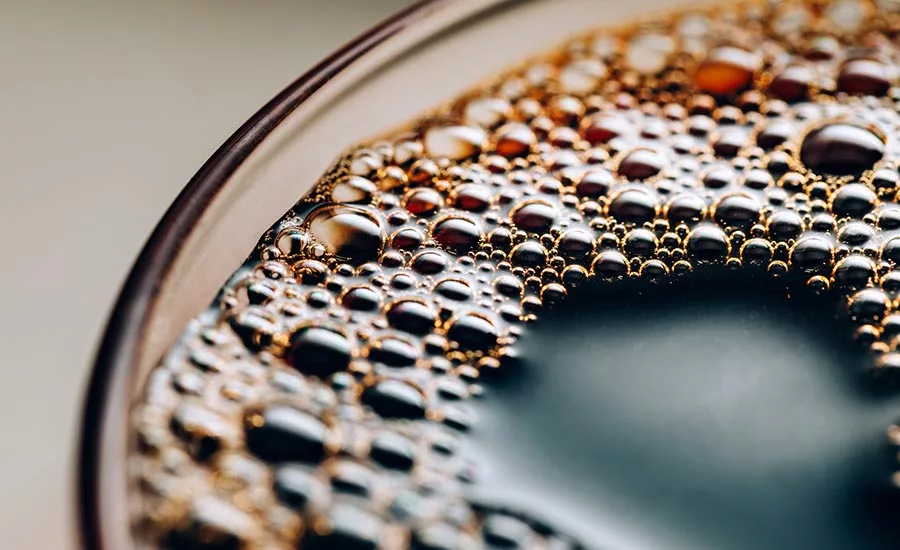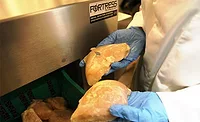Manufacturing News
Some decaf coffees face contaminant and label issues
Clean Label Project wants some coffee brands to disclose use of methylene chloride

The Clean Label Project is pushing for decaffeination processes that it says are safer.
Photo courtesy of Getty Images
Some years ago FE reported that while EPA has specific limits for maximum contaminant levels (MCLs) of arsenic in drinking water, FDA then had no specification/limit set for the water-based juices that we drink. Now there’s a similar issue with another chemical.
According to recent lab research sponsored by the Clean Label Project (CLP), some decaf coffees, which use methylene chloride (aka methyl chloride or dichloromethane) in the decaffeination process, have been tested at contamination levels of 50 parts per billion dichloromethane or higher. The EPA allows a maximum of 5 ppb in drinking water with a preferred or maximum contaminant level goal (MCLG) of zero ppb. In 2000, the state of California set a public health goal of not more than 4 ppb of methylene chloride in drinking water, based on a daily consumption of 2.2 liters of water per day. According to EPA, high levels of dichloromethane can cause liver problems and/or an increased risk of cancer.
The FDA does, however, specify (21CFR173.255): “In coffee as a residue from its use as a solvent in the extraction of caffeine from green coffee beans, at a level not to exceed 10 parts per million (10,000 ppb or 0.001%) in decaffeinated roasted coffee and in decaffeinated soluble coffee extract (instant coffee).” This has remained in effect for 35 years, says CLP.
Clean Label Project’s lab sampled decaf coffees by adding 0.5 grams of ground coffee to a vial along with 5 ml of water. Testing was performed using gas chromatography mass spectroscopy with purge and trap (GSMS/P&T). The level of qualification (LOQ) was 50 ppb. Note: A rounded tablespoon of ground coffee weighs about 9 grams.
Should labels reflect decaf process?
Not all decaf coffees use the dichloromethane process and therefore have no issues with potentially dangerous chemical residues. For example, other processes use supercritical carbon dioxide, which is in our bodies and the air we breathe—and/or a heated water process—both of which produce no methylene chloride or chemical residues.
As a result of CLP’s testing of 24 leading decaf coffee brands, the organization—interested in promoting transparency in labeling—filed lawsuits against five of the largest coffee brands for including methylene chloride in the process as an active ingredient but providing no information as such on the label. Davitt, Lalley, Dey, & McHale filed the lawsuits on behalf of CLP in D.C. Superior Court against AmazonFresh, J.M. Smuckers’ Café Bustelo, Peet’s Coffee & Tea Holdco Inc., Keurig Green Mountain Inc. and Kraft Heinz Maxwell House.
According to the lawsuits, the defendants engaged in false and/or deceptive labeling, marketing and sale of decaffeinated coffee products. Some products were labeled as “pure,” but testing by the independent lab revealed quantifiable amounts of the toxic chemical methylene chloride anywhere from 50 to greater than 90 ppb.
Looking for quick answers on food safety topics?
Try Ask FSM, our new smart AI search tool.
Ask FSM →
“Is it reasonable that a consumer would expect that kind of chemical?” asks Jaclyn Bowen, Clean Label Project executive director. “Clean Label Projects’ position is that consumers have a right to know what they buy for themselves and their families.” Therefore, it should be disclosed on the product’s package, and let consumers make the choice, adds Bowen.
She suggests that an appropriate label should say, “decaffeinated using methylene chloride.” With access to social media and websites, consumers today expect this basic fact on the label and even more information online about the products they buy.
Of course, says Bowen, coffee companies “could choose 100% chemical-free decaffeination processes, such as the certified organic approved processes, carbon dioxide or Swiss water method.”









